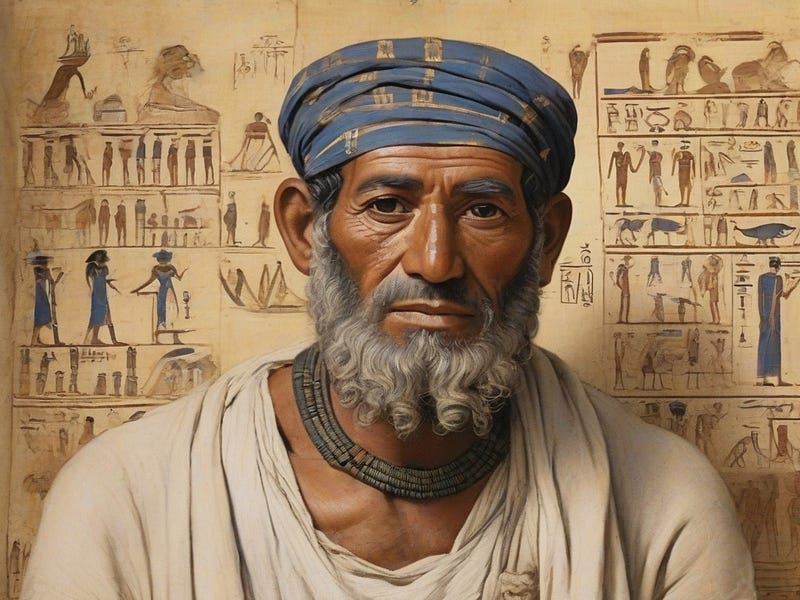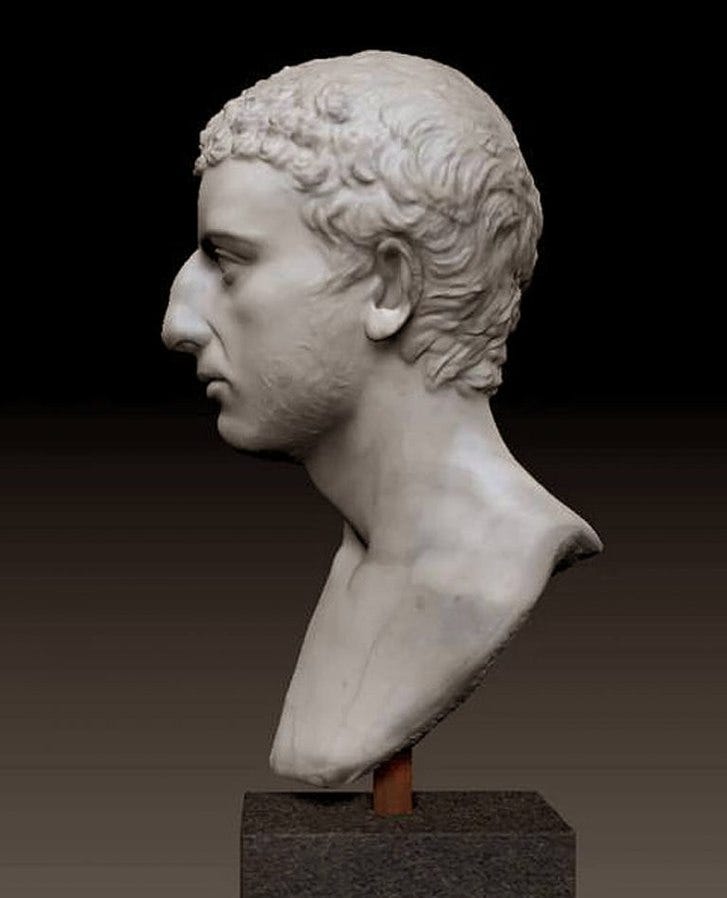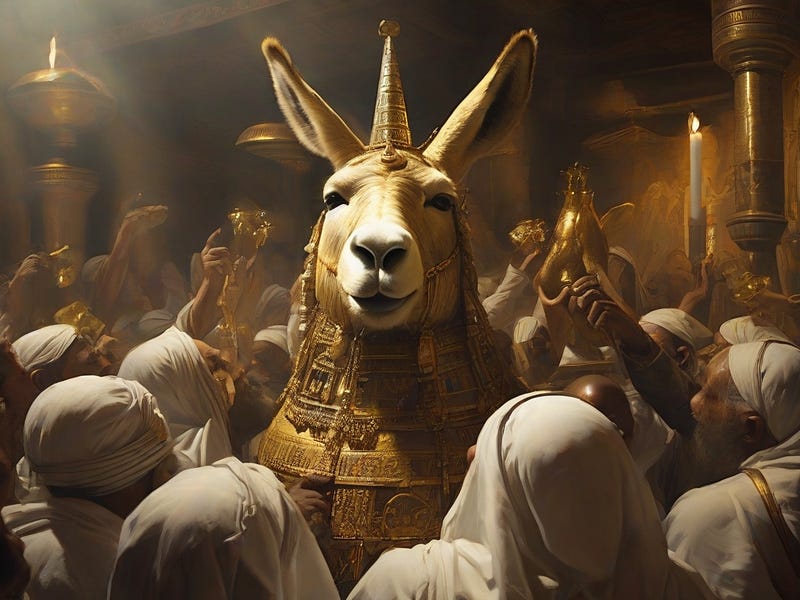# The Historical Roots of Egyptian Antisemitism
Written on
Chapter 1: The Origins of Antisemitism in Ancient Egypt
Accusations against Jews, blaming them for various offenses, can be traced back to ancient civilizations. Egyptians were the first to construct a narrative filled with allegations, which later found endorsement among Greek historians and was humorously embraced by the Romans. This illustrates the antisemitic sentiments prevalent in ancient Egypt.

Historically, Jews were portrayed as a group that stuck together, held disdain for others, and engaged in ritualistic murders. They were also labeled as lepers spreading disease. This portrayal did not originate from modern antisemitic propaganda but rather stemmed from the writings of ancient Greek historians. Josephus Flavius, a notable Jewish historian born around 37 AD, documented these sentiments. He witnessed the Jewish revolt against Roman rule in 66 AD and, following the war, was awarded Roman citizenship, relocating to the imperial capital.
Josephus authored significant works, including "The Antiquities of the Jews" and "The Jewish War," but also composed a lesser-known piece, "Against Apion." This text aimed to counter the negative stereotypes about Jews found in Greek literature, exposing their absurdity while elucidating Jewish customs and traditions. The Apion mentioned in the title was a grammarian from Alexandria who later settled in Rome during Emperor Tiberius's reign. His now-lost work, "Aigyptiaka," contained sections that discussed the Jewish people, sections that Josephus critiques in his own writing.

The Exodus Narrative Reinterpreted
Before addressing Apion's views, Josephus tackled the perspectives of other ancient Egyptian historians, whose works have unfortunately been lost over time. Manetho, a 3rd-century BC Egyptian priest, described Moses as a fellow priest who was originally named Osarsiph. According to him, Pharaoh Amenophis sought to cleanse Egypt of lepers and other unclean individuals, sending them to the quarries before allowing them to settle in the abandoned city of Avaris.
Osarsiph led these marginalized individuals, imposing laws that forbade the worship of Egyptian gods and prohibited interactions with outsiders. He later reached out to Jerusalem, urging its inhabitants to join him in an uprising against Egypt. This narrative likely reflects the invasion of the Hyksos during the Second Intermediate Period, although Manetho does not explicitly identify Jews among the afflicted. Josephus also referenced Chairemon, a Stoic philosopher from the 1st century AD, who recounted a similar tale where Pharaoh Amenophis expelled 250,000 afflicted individuals, leading to a revolt that resulted in the Pharaoh fleeing to Ethiopia.

Apion's Distorted Depictions
Apion consistently expressed anti-Jewish sentiments in his writings, denying Jews the title of "Alexandrians" and their rights to citizenship. He ridiculed Jewish customs such as circumcision and the dietary restriction against pork. In his "Egyptian Histories," he elaborated on the story of Moses leading "lepers, blind, and lame Jews" out of Egypt, suggesting that they suffered from afflictions during their journey to Judea.
He also claimed that the Jews worshipped a donkey's head in their temple, a narrative that had appeared in Greek literature long before him. This notion would later be misapplied to Christians as well, highlighting the persistent nature of such accusations throughout history.

Allegations of Ritual Murders
Further accusations against Jews included claims of ritual murder and the consumption of human flesh. According to Apion, Jews abducted a Greek, fattened him for sacrifice, and consumed his flesh according to secret laws. Such allegations appear to have no basis in reality, as other sources do not support the notion of Jewish rituals demanding offerings of foreigners. Apion's narratives painted Jews as a threat to civilized society, emphasizing their supposed hostility towards other peoples.
Ironically, Apion himself faced a tragic end, suffering from a painful ulcer that necessitated circumcision, a fate Josephus noted with undisguised satisfaction. Thus, the stereotypes originating from Greco-Egyptian culture would continue to evolve and proliferate in subsequent centuries.

Conclusion: The Legacy of Ancient Antisemitism
The narratives constructed by figures like Apion highlight the long-standing tradition of antisemitism that has plagued Jewish communities throughout history. By analyzing these ancient texts, we gain insight into the roots of discrimination that have persisted into modern times.

For those who appreciate in-depth explorations of such topics, consider supporting my work on Medium.com. Your contributions help sustain the effort to create quality content.